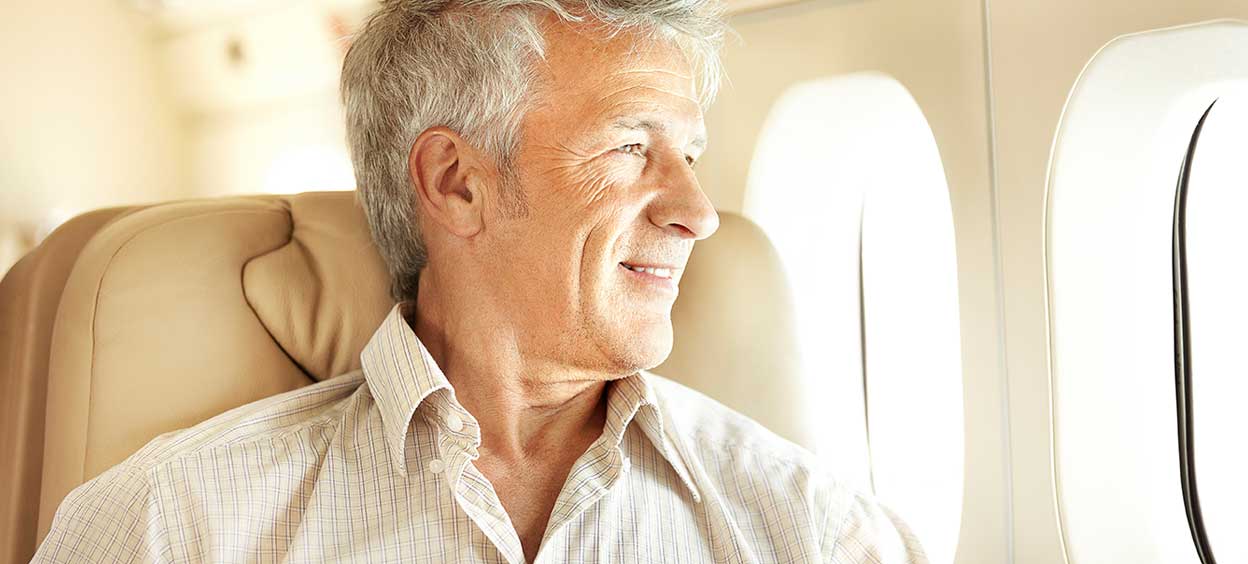Tips for the Nervous Flyer

Does flying make you feel nervous? Anxious? Wheezy? It can make some people uneasy, for obvious reasons – soaring through the clouds in a manmade structure doesn’t exactly sound comforting, even though flying has been rated as one of the safest ways to travel. We asked around the office, people we knew, and online to gather some tips that have helped us with our flying nerves. Here are some tips we found that might help you overcome the fear, giving you a calmer flight experience.
- Be honest with yourself – If you suffer from anxiety, or fear that you might have a panic or anxiety attack during the flight, talk to your doctor. It’s helpful to identify to what extreme your nerves will take, and a doctor may be able to help for those more elevated situations. Everyone reacts differently, and it’s safer to take the proper precautions beforehand. Advice on the internet might not suffice for these situations.
- Think ahead – Try to mentally prepare yourself for the flight before you take off. Understand where the fear is coming from and what it will be like on the plane. It also helps to think ahead once you’re actually in the air – imagining and getting excited about your destination could help motivate you to power through the flight.
- Bring distractions – Not thinking about what your fears is the first step in overcoming the nerves. Bring something that will help remove you from what’s happening around you. A book, puzzle, music, movies – anything that will help keep you focused and relaxed. Try and plan ahead for how long you will be flying and make sure you bring enough to keep you preoccupied the whole time – both there and back.
- Be choosy – When choosing your seat, try and pick one close to the front of the plane – turbulence is worse the further back you go. You might have to check in before you arrive at the airport or pay a small fee to get the seat you want, but it will be worth it if turbulence strikes.
- Talk about it – Tell both check in staff and flight attendants about your fear – they may be able to provide you with a seat, services and advice that can help get you through the flight. It never hurts to have the extra reassurance from people whose job it is to fly.
- Remember to breathe – Go back to the basic technique of taking long, deep breathes to calm your nerves. Especially for those who are prone to panic attacks, regulating your breathing will help keep your pressure down and your mind clear. Sit up straight, close your eyes, and breathe in through your nose and out through your mouth.
- Travel at night – Flying overnight might increase the chances of you falling asleep during the flight, which has obvious positives for the nervous flyer – close your eyes, open them, and you’ve arrived. Even if you don’t sleep through the whole thing, any time you can spend catching some z’s is less time you have to focus on being in the air.
- Fly with someone with you trust – If you don’t need to fly alone, fly with someone that you know who can help guide you through the flight. It’s easier to feel comfortable when there’s someone you trust with you.
Flying can be uneasy for some, but there are ways to calm your nerves. Plan ahead, stay calm, and before you know it you’ll be in a place that makes it all worth it.
